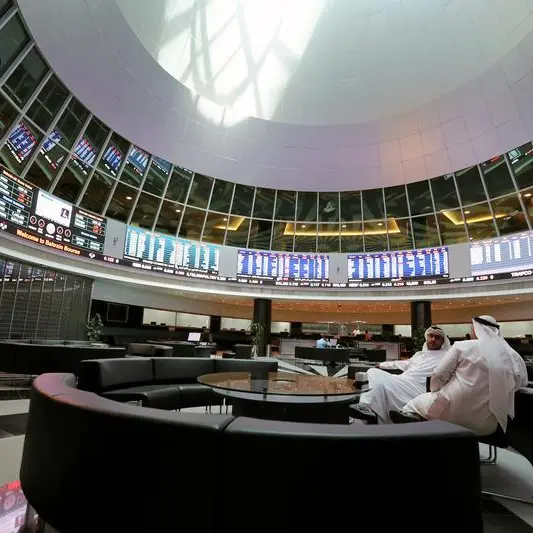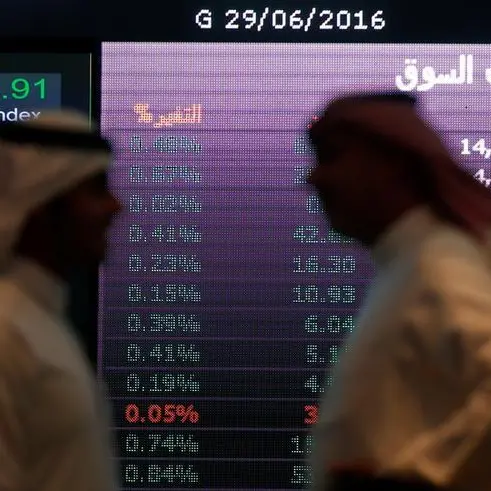PHOTO
World markets cheered the selection of fund manager Scott Bessent as U.S. Treasury Secretary on Monday on hopes he might restrain debt levels, while falling yields weighed on the dollar and commodities such as gold and crude declined.
The pan-continental STOXX 600 opened higher on Monday after Trump picked fiscal hawk Bessent as Treasury Secretary, a decision that appeared to be welcomed by markets.
Major indexes in Frankfurt, Paris and London gained between 0.3%-0.6%, while Wall St futures , were up 0.4%-0.7%.
Italian lender UniCredit announced a $10.6 billion all-scrip bid for rival Banco BPM, putting those stocks on the radar.
Benchmark 10-year Treasury yields fell more than 6 basis points to 4.35% and the dollar fell 0.25% against the yen to 154.40.
Sterling rallied 0.35% to $1.2579, while the euro firmed 0.6% against the greenback.
"The market view (is) that Bessent is a 'safe hands' candidate," said Societe Generale strategist Stephen Spratt, a relief as the risk of a more unorthodox pick was priced out of markets and as Bessent has mentioned restraining U.S. borrowing.
Japan's benchmark Nikkei average closed up 1.30%, while China's blue-chip index dropped to a five-week low and Hong Kong shares sank to their lowest in two months as concern over a looming U.S. trade war and elevated geopolitical tensions sapped already fading risk appetite.
President-elect Trump's appointment of a Treasury secretary has been closely watched in bond markets as expectations of tax cuts as well as tariffs and an immigration crackdown have stoked fears of inflation and big deficits.
In an interview published on Sunday, Bessent told the Wall Street Journal that both tax and spending cuts were priorities.
Bessent told CNBC earlier in November, before his selection as Treasury secretary, that he would recommend "tariffs be layered in gradually", though his appointment gave only the merest and short-lived boost to China's yuan.
EURO PRESSURE
The broad selloff eased some pressure on the euro, which has fallen sharply this month on worries over Trump tariffs, deteriorating economic conditions and signs of an escalation between Russia and Ukraine.
European data due this week would shed light on the euro zone's economic trajectory, said Bruno Schneller, managing partner at Erlen Capital Management in Zurich.
"Looking ahead, the risk of heightened volatility persists, particularly with preliminary inflation data for November from Germany on Thursday and France on Friday," said Schneller.
At $1.0457 the euro had recovered from last week's two-year lows, though there was hardly a sigh of relief.
"This challenging backdrop intensifies the European Central Bank’s balancing act as it prepares for its Dec. 12 meeting," added Schneller.
Expectations for a 50-basis-point rate cut from the ECB in December have surged, with market participants now pricing in more than a 50% chance of such a move.
The U.S. week ahead is likely to be lightened by Thursday's Thanksgiving holiday in the U.S., with many traders probably making a long weekend of it.
October PCE and jobless figures will be published on Wednesday along with the latest GDP estimate, and Federal Reserve minutes are due on Tuesday.
Markets still expect a Fed cut next month, though rate-cut bets have been dialled back in recent weeks.
Expectations of a deep cut in New Zealand gathered steam, with a 50 bps cut for Wednesday priced and about a 1/3 chance of a 75 bp cut.
New Zealand's stock market has notched up its biggest two-day rally since June, gaining 3.2% on Thursday's close.
Bitcoin ticked up slightly from Sunday to $98,334. On Friday, it reached a record peak of $99,830 amid expectations of a more friendly regulatory environment for cryptocurrencies under Trump.
It is up about 45% since Trump's sweeping election victory on Nov. 5, when voters also elected a slew of pro-crypto lawmakers to Congress.
Oil prices slipped on Monday following 6% gains last week, but supply worries amid mounting tensions between Western powers and major oil producers Russia and Iran kept a floor under prices.
Brent crude futures were down 60 cents at $74.57 a barrel by 1003 GMT, while U.S. West Texas Intermediate crude futures had dropped 61 cents to $70.63 a barrel.
Spot gold was down 1.8% at $2,664.53 per ounce.
(Reporting by Nell Mackenzie and Tom Westbrook; Editing by Dhara Ranasinghe, Kim Coghill, Stephen Coates and Jan Harvey)





















